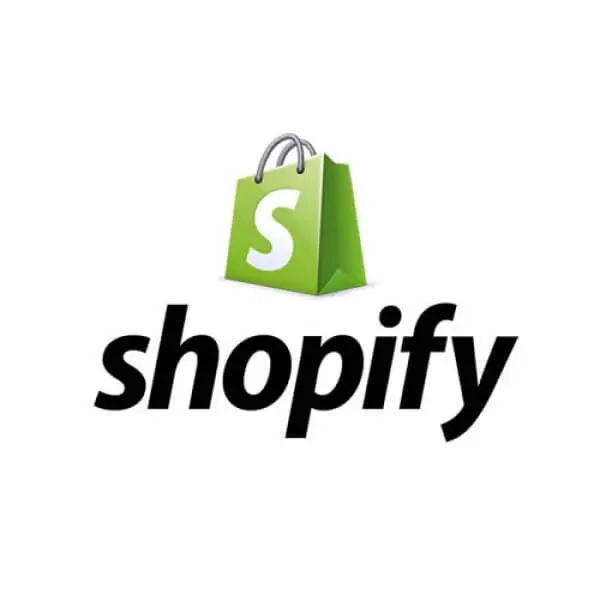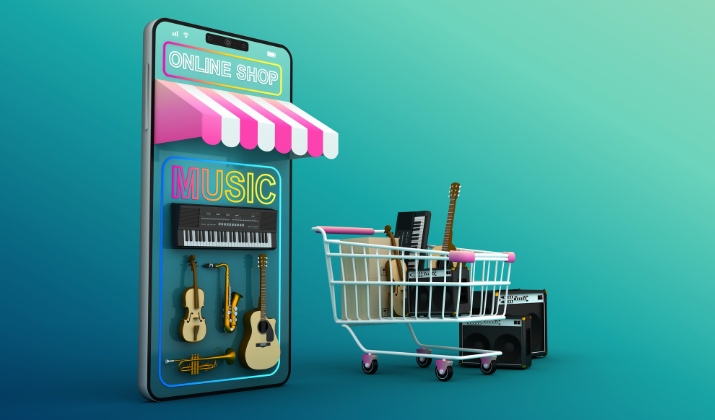Shopify is a popular choice for businesses looking to establish a strong online presence.
With its intuitive dashboard and easy-to-use tools, you can quickly set up and customize your online store, manage your product catalog, and process customer orders and payments.
Shopify’s focus on ecommerce functionality ensures that you have access to a robust set of features tailored to the unique needs of online retailers.
Odoo, on the other hand, is an all-in-one business management suite that includes ecommerce capabilities as part of its comprehensive suite of applications.
Odoo offers a wide range of modules and features that go beyond just ecommerce, such as inventory management, accounting, human resources, and project management.
Its open-source nature and customizable nature make it a popular choice for businesses seeking a more integrated and flexible solution to manage their entire operations, not just their online store.
If you have these two platforms in sight for your upcoming venture, then you might want to know which is better of the two, and more suited to your business needs. Right?
Well, without much ado, let’s uncover these two platforms – Shopify and Odoo.
Also Read: Hubspot vs Shopify
Catalog Management
Both Shopify and Odoo offer robust catalog management features, enabling businesses to easily create and manage their product offerings.
Product Variants & Attributes
Shopify’s comprehensive product management capabilities allow you to create and configure product variants, such as different sizes, colors, or materials, ensuring your online store can accommodate the diverse needs of your customers.
Similarly, Odoo’s flexible attribute management system makes it easy to showcase the unique characteristics of your products, enabling you to provide a rich and informative shopping experience.
Try Shopify free followed by first month at just $1. No credit card required. Limited Time Offer.
Digital Product Support
Shopify and Odoo both offer seamless support for digital products, such as software, e-books, and media files.
This empowers you to sell downloadable items alongside your physical inventory, expanding your product offerings and reaching a wider customer base.
Both platforms provide features like automatic file delivery, access control, and dedicated digital product management tools to streamline the sale and fulfillment of these unique products.
Also Read: Shopify vs Opencart
Product Reviews & Ratings
Enabling customer reviews and ratings is a crucial step in building trust and credibility with online shoppers.
Shopify and Odoo both offer integrated product review systems, allowing your customers to leave valuable feedback and ratings on the products they purchase.
The valuable data can help you gather insights and make informed decisions to continuously improve your product offerings and enhance the overall shopping experience.
Inventory Management
Both Shopify and Odoo offer robust inventory management capabilities to help you track stock levels, forecast demand, and optimize your supply chain.
Stock Tracking & Forecasting
Shopify and Odoo provide comprehensive inventory tracking features, allowing you to monitor your stock levels, set low-stock alerts, and generate detailed reports on inventory movements.
Odoo takes it a step further with advanced forecasting tools, enabling you to predict future demand and proactively plan your inventory to meet customer needs.
Also Read: Shopify vs Medusa.js
Barcode & SKU Support
To streamline inventory management and order fulfillment, both platforms support the use of barcodes and SKUs (Stock Keeping Units).
This allows you to quickly identify and track individual products, making it easier to manage your inventory and process customer orders efficiently.
Multiple Warehouse Integration
For businesses with multiple physical locations or warehouses, Odoo and Shopify offer the ability to integrate and manage inventory across these different sites.
This helps ensure that your stock levels are accurately reflected, and that orders can be fulfilled from the most appropriate location, optimizing your overall supply chain.
Explore: Gumroad vs Shopify vs Clickfunnels
User Experience & Website Design
Both the platforms offer mobile-optimized designs and responsive themes, ensuring that your online store looks and functions well on smartphones, tablets, and desktops.
Responsive Design & Mobile Optimization
Shopify and Odoo both prioritize responsive design, automatically adapting your store’s layout and content to provide an optimal viewing and interaction experience on any device.
This ensures that your customers can easily browse, search, and make purchases from their preferred devices, whether they’re on the go or at home.
Try Shopify free followed by first month at just $1. No credit card required. Limited Time Offer.
Drag & Drop Page Builders
Shopify and Odoo both feature user-friendly drag-and-drop page builders, allowing store owners to easily customize their website’s layout, content, and overall appearance without extensive coding knowledge.
These visual editors make it simple to create and maintain an engaging and visually appealing online store.
AI-Powered Site & Theme Builders
In addition to their drag-and-drop page builders, both platforms offer AI-powered tools to assist with website design and theme selection.
These features use artificial intelligence to generate customized store designs and themes based on your business’s branding and preferences, streamlining the website creation process.
Explore: Shopify vs Nopcommerce
Ecommerce Capabilities
Product Management & Display
Both Shopify and Odoo provide robust product management capabilities, allowing you to easily add, organize, and display your product catalog.
This includes features like product variants, bulk import/export, and customizable product pages to showcase your offerings effectively.
Customer Management & Engagement
Effective customer management and engagement are crucial for ecommerce success.
Shopify and Odoo offer tools to help you manage customer information, track order history, and facilitate customer interactions, such as through customer accounts, wishlists, and abandoned cart recovery.
Explore: Wix vs Squarespace vs Shopify
Shipping & Fulfillment Options
Seamless shipping and fulfillment are essential for providing a positive customer experience.
Both platforms integrate with a wide range of shipping carriers and offer features like custom shipping rules, label printing, and support for dropshipping and in-store pickup.
Marketing & Promotion
Email Marketing & Automation
Both platforms offer email marketing tools that enable you to design and schedule newsletters, promotional messages, and automated workflows.
These tools can help you stay in touch with your customers, inform them about new products, and encourage repeat business through personalized campaigns.
Check Out: Shopify vs Lazada
Coupon & Discount Management
Offering discounts, coupons, and promotions is a valuable tool for attracting and retaining customers.
Shopify and Odoo provide comprehensive coupon and discount management features, allowing you to create, distribute, and track the effectiveness of your promotional campaigns.
These capabilities can help you incentivize purchases, increase basket sizes, and build customer loyalty.
Try Shopify free followed by first month at just $1. No credit card required. Limited Time Offer.
Marketplace Integration (eBay, Amazon)
To expand your reach and customer base, you may choose to sell on popular online marketplaces like eBay and Amazon.
Shopify and Odoo offer integrations with these platforms, enabling you to manage your products, orders, and inventory seamlessly across multiple sales channels.
This can help you tap into a wider audience and diversify your ecommerce strategy.
Check Out: Shopify vs Hostinger
Sales & Accounting
Shopify and Odoo both provide integrated accounting and invoicing features, allowing businesses to streamline their financial management processes.
This includes the ability to generate invoices, track payments, and manage taxes and other financial obligations directly within the platform.
Tax Management & Compliance
Ensuring tax compliance is a critical aspect of ecommerce operations.
Shopify and Odoo offer tools to help businesses manage taxes, including automatic tax calculation based on location and support for multiple tax rates and jurisdictions.
Check Out: Meesho vs Shopify
Multi-Currency & Payment Gateway Support
To cater to a global customer base, both platforms offer multi-currency support and integration with a wide range of payment gateways, such as PayPal, Stripe, and various regional providers.
This allows businesses to accept payments in the currencies and methods preferred by their customers.
| Feature | Shopify | Odoo |
|---|---|---|
| Integrated Accounting and Invoicing | ✓ | ✓ |
| Automatic Tax Calculation | ✓ | ✓ |
| Support for Multiple Tax Rates and Jurisdictions | ✓ | ✓ |
| Multi-Currency Support | ✓ | ✓ |
| Payment Gateway Integrations | Wide range (e.g., PayPal, Stripe) | Wide range (e.g., PayPal, Stripe) |
Reporting & Analytics
Comprehensive reporting and analytics are essential for data-driven decision-making.
Shopify and Odoo provide robust reporting capabilities, offering a variety of pre-built reports on sales, inventory, and other key business metrics. Users can also customize these reports to suit their specific needs.
Sales & Inventory Reports
Both platforms offer in-depth sales and inventory reports, giving you a clear understanding of your business performance.
These reports provide valuable insights into your top-selling products, revenue trends, and stock levels, empowering you to make informed decisions about your product offerings and inventory management.
Also Read: Gumroad vs Shopify
Customer Insights & Behavior Analysis
Understanding customer behavior and preferences is crucial for optimizing the customer experience and driving sales.
Shopify and Odoo offer insights into customer activities, such as purchase history, abandoned carts, and browsing patterns, helping you make informed decisions about your marketing and product strategies.
Integration with Analytics Tools
To further enhance their reporting and analytics capabilities, Shopify and Odoo offer integration with popular third-party analytics platforms, such as Google Analytics and Plausible Analytics.
This allows you to combine the data from your ecommerce platform with additional customer and website insights, providing a comprehensive view of your business performance.
Scalability & Customization
App Stores & Third-Party Integrations
Shopify and Odoo’s extensive app stores and integration marketplaces give you access to a vast ecosystem of complementary solutions.
From marketing and analytics tools to shipping and fulfillment services, these platforms empower you to seamlessly integrate the tools you need to optimize your online business operations.
This level of customization can be a game-changer, helping you create a truly unique and tailored shopping experience for your customers.
Open-Source vs Proprietary Platforms
The difference between Shopify’s proprietary, SaaS-based approach and Odoo’s open-source model can significantly impact the level of customization and control you have over your ecommerce platform.
Shopify offers a more streamlined, user-friendly experience, while Odoo’s open-source nature provides greater flexibility and the ability to customize the platform to meet your unique business needs.
This tradeoff between simplicity and customization is an essential consideration when choosing the right solution for your ecommerce venture.
Try Shopify free followed by first month at just $1. No credit card required. Limited Time Offer.
Hosting Options: Cloud vs On-Premises
Another key factor to consider is the hosting model of your ecommerce platform.
Shopify is a cloud-based platform, meaning it manages all hosting and infrastructure requirements on your behalf.
Odoo, on the other hand, offers both cloud-hosted and on-premises deployment options, allowing you to choose the hosting model that best fits your requirements, such as data sovereignty, IT infrastructure, and control over the platform.
Depending on your business needs and preferences, this hosting flexibility can be a significant advantage.
Also Read: Shopify vs Shoplazza
Conclusion
Choosing the right platform is a crucial decision that can significantly impact your business’s online success.
Shopify and Odoo both offer robust ecommerce capabilities, but their differences in focus, customization, and hosting options may make one solution more suitable for your specific needs.
When evaluating these platforms, consider factors like your business size, industry, feature requirements, and desired level of control and flexibility.
Shopify, with its user-friendly interface and dedicated ecommerce focus, may be a better fit for smaller or less tech-savvy businesses.
Odoo, on the other side, offers a more comprehensive suite of business management tools and greater customization options, making it an appealing choice for larger or more complex enterprises.













